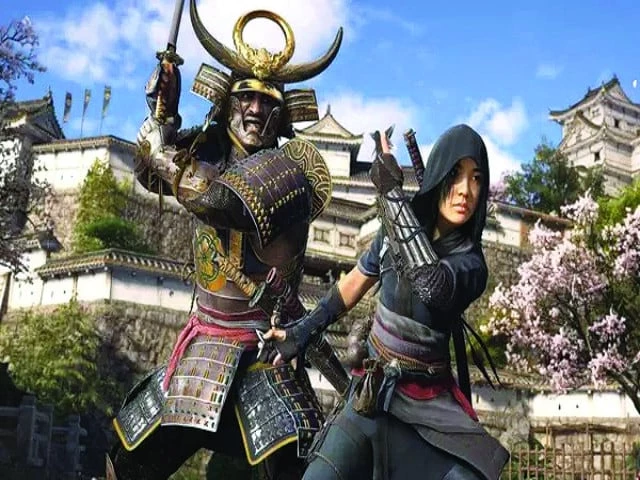Assassin's Creed' sparks bitter battles
A black samurai in the video game has irked Japanese historians

The Assassin's Creed series of video games is adored for painstaking historic accuracy, but also sparks controversy with heavy use of artistic license – most recently with a black samurai in the latest instalment, Shadows.
Released on Thursday, Shadows takes place in 16th-century feudal Japan, replete with imposing fortified cities and tranquil temples crafted by developers.
"They've done a really fantastic job with very accurate recreations," said Pierre-Francois Souyri, a historian among a dozen French and Japanese experts consulted for the game in a bid to weed out cliches and anachronisms.
Since being tapped in late 2021, Souyri says he has answered "a hundred or more questions" from the development team, ranging from how salt was produced to how puppet shows were staged.
Souyri adds that within the carefully crafted setting, "it's not too hard to come up with characters who find themselves having adventures" in "a very eventful period" marked by intense conflicts.
Black samurai
But one foundational choice by the creative team has provoked fierce debate online and beyond: casting a black samurai, Yasuke, as one of the two playable protagonists. The other is a young female ninja, Fujibayashi Naoe.
Irritation that an African character was depicted with the rank of samurai prompted a Japanese petition against the move, receiving more than 100,000 signatures.
The text blasted "lack of historical accuracy and cultural respect" by game developers.
Souyri was unimpressed by the criticism.
"It's the game's conceit to call him a samurai, it's not a doctoral thesis," he said.
Like other historians who have weighed in, he pointed out that Yasuke "is a person who really existed" – although the historic evidence on his status "can be difficult to interpret".
Yuichi Gozai, assistant professor at the National Centre for Japanese Studies in Kyoto, disagreed.
"Nothing proves that Yasuke had such qualifications" making him a samurai, medieval history specialist Gozai said.
In surviving documents, "Yasuke stood out above all for the colour of his skin and his physical strength".
His patron, warlord Oda Nobunaga, likely "kept Yasuke by his side to show him off", Gozai believes.
Erupting even before Shadows had been released, the controversy over the black character's inclusion has been the fiercest surrounding any Assassin's Creed game.
The series has been attacked in the past, including by hard-left French politician Jean-Luc Melenchon for how firebrand Robespierre was depicted in Assassin's Creed Unity, set during the French Revolution.
Culture war battleground
In a February report, the European Video Game Observatory noted that Ubisoft's announcement of Yasuke immediately "sparked a heated controversy amplified by social media".
The outfit blamed most of the uproar on "an American conservative moral crusade" waged by a hard core of "at least 728 interconnected accounts".
That group made up "only 0.8 per cent of speakers on the topic of Assassin's Creed Shadows in the US (but) account for 22.1 per cent of all related coverage", the Observatory added.
The researchers said the behaviour "suggests an astroturfing campaign" that piggybacked on the broader culture-war battles going on during the US presidential election campaign.
"Our use of Yasuke has been instrumentalised by certain people to get their own message across... but that's not the message of the game," said Marc-Alexis Cote, executive producer of the Assassin's Creed franchise.
Nevertheless, within Japan, depictions of the country's history remain a sensitive issue – as shown by reactions to images showing a Shadows player damaging the interior of a temple.
"I understand France's secularist principles, but it's important to acknowledge that ill-considered insults about religion can spark strong reactions," Gozai said.
"This risk should have been foreseen."
Ubisoft itself had resisted for some time fans' demands to see an Assassin's Creed game set in Japan.
But recent successful games set in the feudal period, such as 2019's Sekiro or 2020's Ghost of Tsushima, may have helped overcome the publisher's reticence.
"There's a combined effect of exoticism and familiarity which fascinates Westerners," historian Souyri said.
Many young people, especially in Western countries such as France and the United States, devour Japanese mangas and anime series.
But Gozai argues that "these depictions become counterproductive if they reinforce discrimination and prejudice towards Japan".
He calls Shadows a "clear example of these concerns being realised". AFP





















COMMENTS
Comments are moderated and generally will be posted if they are on-topic and not abusive.
For more information, please see our Comments FAQ